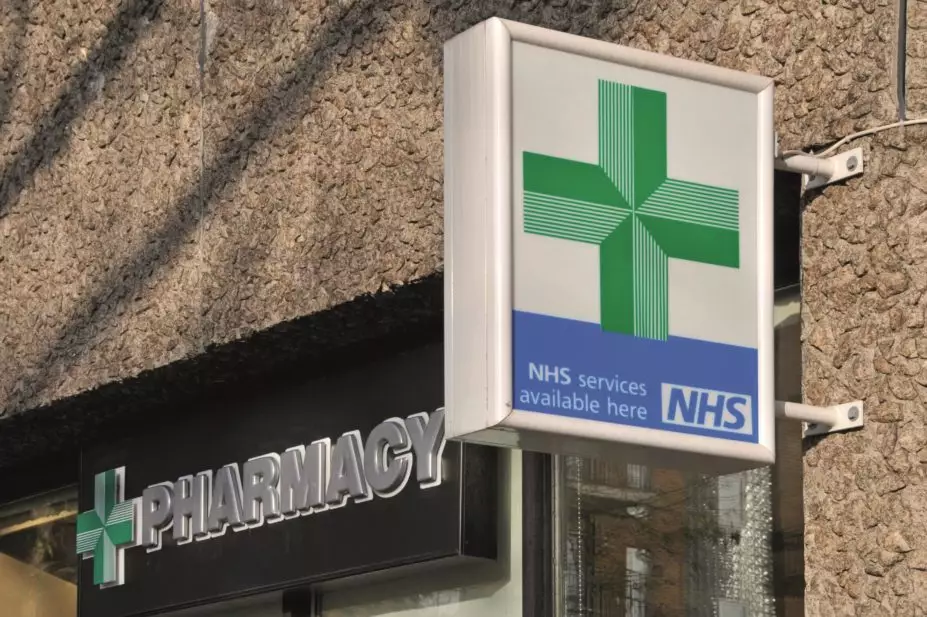
Justin Kase zninez / Alamy
Every community pharmacy in England should have the opportunity to become a Healthy Living Pharmacy (HLP) but the profession and commissioners must do more to buy into the scheme to allow this to happen, according to members of the Royal Pharmaceutical Society’s (RPS) England board.
More than 1,000 community pharmacies in England are accredited as HLPs. The RPS, Pharmacy Public Health Forum and others want this number to rise rapidly within the next few years.
Discussing the future of the scheme at a recent meeting, English Pharmacy board members said the initiative could help pharmacies contribute more to public health services and that it had already shown great benefits in pathfinder areas. Guest speaker Jonathan McShane, chair of the government’s Pharmacy and Public Health Forum, said this “huge opportunity” needed more commissioners to appreciate the benefits of commissioning public health services from pharmacies.
The HLP label is a framework to commission community pharmacies to provide high quality public health services, with a focus on improving health and well-being and reducing health inequalities. It was first launched in pathfinder pharmacies in Portsmouth, Hampshire, in 2010. Examples of HLP services include smoking cessation, alcohol brief interventions and advice, emergency contraception and NHS Health Checks.
Board member Deborah Evans, who worked as programme lead for the HLP pathfinder initiative and is a member of the forum, said HLP status is a “quality marker” for pharmacy’s health and well-being services but that “many pharmacies have been unable to get their HLP accreditation because the local authority or the local pharmaceutical committee, or both, haven’t engaged in it. So that’s one of the barriers they need to get over, and that’s reasonably straightforward [to do]”.
HLPs ‘need rigorous standards’
“The vision is to get to get to a place where every pharmacy has the opportunity to be an HLP,” said Evans. “It does need pharmacy to deliver, and it’s all our jobs to make sure we can support and enable pharmacies to get it — there’s a lot to do in terms of selling the vision.”
She believes now is the time to review the process of accreditation and quality assurance. “If we want to accelerate and grow this to get to the point where the public knows what HLP means, no matter where they are in the country, then that needs review.”
McShane agreed and said the national HLP task group will discuss assessment and accreditation in the near future. “I think it’s really important, if we are having professional conversations with commissioners, talking of the huge benefits that HLPs can bring, that we also make it clear there’s a rigorous set of standards.”
He said better data around which pharmacies have or are bidding for HLP status will be key to an efficient roll-out, as well as more support for pharmacies in the bidding process for HLP status. “We want to look at buddying between HLPs who do have a big presence and those who don’t, to share experiences of how to get off the ground,” he said.
McShane added that there needs to be a guide for councils on what HLP means, the benefits it can bring and the strengths of community pharmacy, to improve awareness among local government.
Board member and RPS treasurer Sultan Dajani asked whether HLP status should be added to the core pharmacy contract. “HLPs are a great thing, so if that’s the case why not strengthen the economic model of that in the contract?” he said. Local alignment of contracts would also help to reduce direct competition with GPs over these services, he added.
Accreditation not harmonised
Sibby Buckle, board member and community pharmacist, said there is little harmonisation of accreditation between areas. Buckle said she had to obtain three different accreditations to provide HLP services in pharmacies across three different counties.
“I fundamentally believe that every pharmacy should be an HLP eventually,” she said. “My request would be to make it easier for us to understand how to become an HLP. Get some of the barriers out of the way and I think you’ll start to see that pharmacy is actually quite willing to deliver public health.”
Gul Root, lead pharmacist at Public Health England’s health and well-being directorate and the strategic lead for HLPs, said the next steps are to accelerate the roll-out of HLPs, improve data collection and assess gaps in coverage across England.
Although the prevention of ill health will be crucial to the NHS ‘Five year forward view’, many pharmacies “have not yet embraced” this agenda, she warned. Yet, doing so will make commissioners more aware of “what pharmacy can do”, she said.
Catherine Duggan, RPS director of professional development and support, said the RPS has developed a number of tools to support public health work by pharmacies, including professional standards in public health and hospital settings and an evaluation report of HLP in practice.
You may also be interested in
Long service of members

Membership fees 2022
